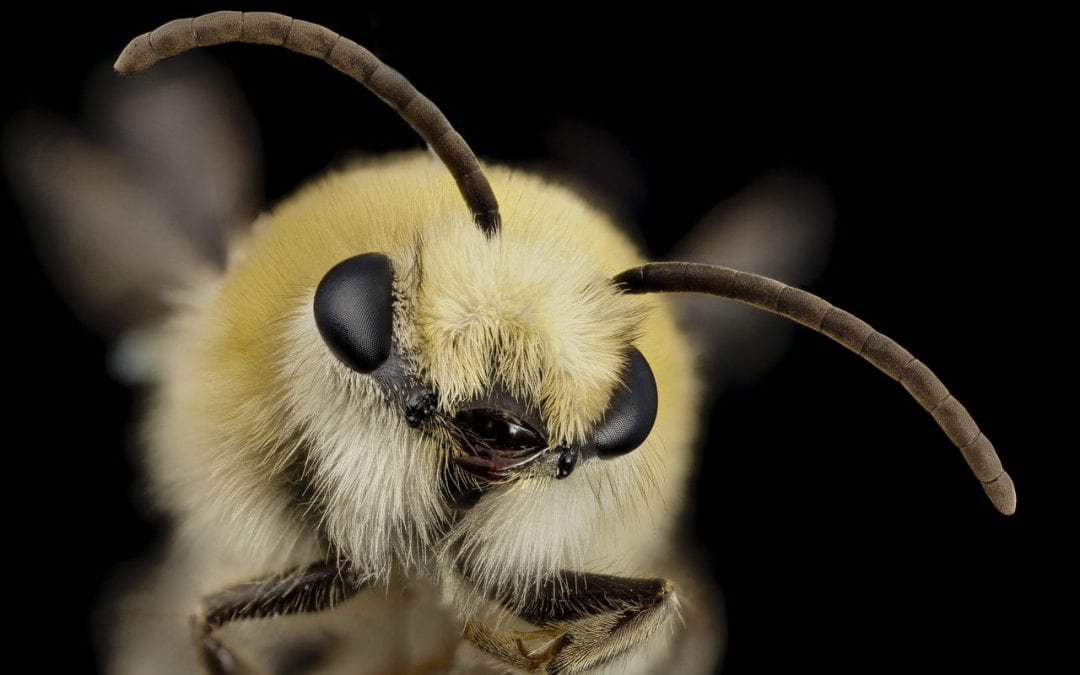
Today is World Bee Day. WORLD Bee Day. That’s right – bees are so important to humanity that they have been given a day for the entire world to celebrate their existence. Most of us have probably heard “Bees are SO important” and even “Without bees, we would die.” Where do those sayings come from, and why exactly are bees so important?
Bees, (and not just honey bees) are widely considered the most important pollinators on the planet. Bees evolved somewhere around 100 million years ago in response to flowering plants, called angiosperms, which evolved about 80 million years earlier. About 90% of all plants and nearly 100% of all food cropsgrown are angiosperms. Without bees, many of those would die off, leaving humans in a pretty bad spot.

Dead honey bee being “photographed” by human figurines, which represents a common, passive mentality.
It has been suggested that every third bite of food is generated by pollinators, like bees. While this statement is a bit misleading (not all of us eat fruits and vegetables like we should), it is powerful and highlights just how much food is owed to pollinators. The idea that “1 in 3 bites is owed to pollinators” is credited to a study by S.E. McGregor published in 1976, in McGregor estimates how much of global food production is dependent on pollinators. McGregor states, “…it appears that perhaps one-third of our total diet is dependent, directly or indirectly, upon insect-pollinated plants.” Having a hard time imagining that? Without bees, it is highly likely that lots of people would starve. Thanks, bees!
But bees are more important than just for food. They also keep our lives vibrant and colorful. While bees are largely responsible for pollinating the crops that we rely on for eating, they are also critical for their pollination services in wild ecosystems. In fact, a study published in 2011 suggests that an average of 78% of plants in temperate regions and 94% in tropical regions rely on pollinators. Bees help keep the world fed, which is important, but they also improve our quality of life by making sure plants keep living and producing those beautiful flowers. Imagine a world without flowers–boring!
As we celebrate the day, be sure to recognize and acknowledge those little buzzing bugs. Most of them are small and easy to miss, but they all help keep us alive and keep life colorful and sweet smelling. It is perfectly acceptable to give an excited and emphatic “thank you!” to bees you see visiting flowers (but don’t touch them – they don’t much like it and they can sting). Maybe they will even appreciate the recognition.
Here are some other days in 2019 dedicated to bees:
August 17: National Honey Bee Day in the United States (honeylove.org)
August 27: National Bee Day in the United States
If you’re interested in supporting local pollinators, email Stephen Robertson from the Office of Sustainability for ideas!
By Stephen Robertson, Biodiversity Coordinator.

